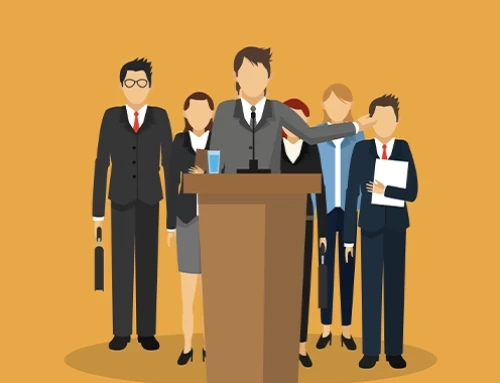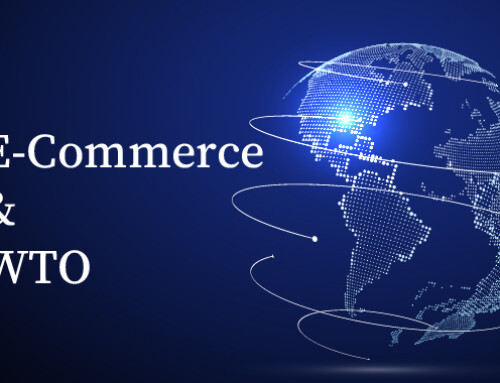Contents
I still have my Starbucks punch card from my university days. Back then, I would collect every punch card and promotion coupon I could find. You know, student life. Loyalty programs have been a hot marketing strategy for over ten years now, and they are still trending. The fact that loyalty programs are still useful is because they don’t depend on any marketing strategy that falls out of trend. They depend on the most important asset of a business; Customers.
Loyalty programs are not only for on-budget students like me. They are a way to value your loyal customers. Anyone who feels appreciated by their favorite business will happily become an advocate for it. Back then, it was punch cards, then it was club cards, and now, they are digital codes.
As a lawyer, you may wonder if you can strategize loyalty programs in your law firm’s promotion marketing plan. The question is, how would you do it? I mean, you can’t go around promoting a “Buy five DUI representations, get one free!” loyalty program; that is as ridiculous as it sounds. You can, of course, use a loyalty program for law firm promotion. After all, law firms are service-based businesses.
I wrote this blog post to give you a thorough insight on loyalty programs, law firm marketing, and how to promote a law firm using loyalty programs.
How Customer Loyalty Programs Work
Customer loyalty programs are a way to reward customers for doing business with you. Simply put, every time a client signs a contract with you, they earn points that they can later redeem for discounts, free consultations, and rewards. Loyalty programs encourage clients to do repetitive business with you rather than going to your competitors. The more clients engage or buy services from you, the more points they earn. The goal of a loyalty program is to build trust and motivate repeat purchases.
A 2021 poll by Yotpo had some interesting results. 68% of participants admitted that they join loyalty programs from the businesses they love. 56% of those said that they would spend more if the business offered cheaper and more affordable options.
Having a loyalty program means that you have to offer something for free. It can be a product, some services, cash-back options, or early access to new services. However, the payoff or ROI of having a loyalty program is worth it:
- More customer referrals: if you offer an outstanding loyalty program, your clients will tell their friends and family about it. When they need legal assistance, they will remember you.
- Higher client retention: People do stay loyal to their lawyers when they find value in their practice and loyalty program.
- More sales: the higher you reward your clients with your loyalty program, the more they spend on your services. Basically, the whole point of having a loyalty program.
- Brand advocacy: A good loyalty program can turn clients into advocates. Advocates help you get more clients through the word-of-mouth strategy. This law firm promotion strategy is highly crucial for law firms. Because people tend to trust lawyers when they hear positive things about them.
By now, you may have an idea of what loyalty programs are. But not all loyalty programs are the same. There are different types of loyalty programs that affect your client relationship differently.
Types of Loyalty Programs in Law Firm Promotion
There are six different types of loyalty programs. Not all of them are suitable for law firm promotion, but I will point out the ones that you can use.
1-Point-Based Loyalty Programs
Point-based programs are the original type of loyalty programs that were introduced hundreds of years ago. Retailers would give copper tokens to customers who’d purchase from them. Later on, customers could use the tokens for rewards and free products. We now know point-based programs famously by punch cards. Basically, the strategy behind the point-based loyalty was to earn a certain amount of points to redeem them for a reward. Now, as I mentioned before, you cannot just say, “buy nine presentations so you get the tenth one for free.” But you can use this strategy to sell consultation hours.
Consultation sessions are usually priced by time. Let’s say you charge consultation sessions for half an hour. You can offer a free consultation session to a client after acquiring two hours of consultation. Here’s a trick. Use a time tracking tool like RunSensible to track how much time each client spent in consultation sessions. Then, use RunSensible’s loyalty program to add points to their invoices.
The benefits of point-based loyalty programs are:
- Free membership. Clients don’t have to pay anything to join the program.
- Great for increasing clients and collecting data.
- You don’t have to convince clients to join the program.
- It’s a very low-risk law firm promotion.
2. Cash Back Loyalty Programs
Cash back loyalty programs are kind of similar to point-based programs. Basically, clients can earn an amount of their money back after spending a certain amount of money on your services. This is also a good strategy to get clients to do business with you. There’s no cost to enter the loyalty program, and it also works like giving your clients a discount.
You can use this program for expensive law firm services like criminal defense. Criminal defense is a hard practice area when it comes to finding new clients. That’s because clients with criminal charges usually can’t afford a lawyer and will choose to represent themselves or go with a public defender. Even if they can afford you, the market is very competitive in this practice area. So, a cash-back loyalty program can persuade criminal defense clients to hire you.
The benefits of cash-back loyalty programs are:
- Free membership.
- A great strategy for clients who need expensive services.
- Value is easy for clients to understand.
3. Tiered Loyalty Programs
Tiered loyalty programs reward customers when they reach different milestones. The program offers exclusive rewards to exclusive customers who are willing to pay more to reach higher milestones. The more the client spends, the higher tier they reach. It’s a great program to increase engagement because all members receive the same points in non-tiered programs. With tiered programs, it’s a matter of status.
There’s a gamification strategy involved in tiered loyalty. Businesses show milestone levels and status to customers. This will keep the customers returning to earn more points and “level up.” Some tiered programs also show customers the percentage of total members in each tier. This will increase the customer’s desire to compete against other customers.
Tiered loyalty programs may not be the best option to go for as a law firm promotion strategy. But if you can come up with exclusive services to offer and a gamification strategy to build your tiered loyalty program based on, you might actually win at loyalty programs.
The benefits of tiered loyalty programs are:
- You can identify higher-value customers.
- Encourages additional purchases.
- Give the best rewards to your best customers.
4. Coalition Loyalty Programs
Coalition loyalty programs are an interesting strategy because they are offered across different businesses. Think of it this way, as a client, you earn points by purchasing from a business. Then, you can spend your points to get rewards from a collection of businesses the program offers you. This program doesn’t mainly increase loyal customers. It also gives you access to program members and clients of your partnered businesses.
Running a coalition program is a great opportunity to partner with other law firms. If you manage to create a program with law firms in different practice areas, your clients can use their earned points to hire attorneys for legal issues outside your practice area. The same will happen to clients from the other law firms. They can come to you with legal matters you specialize in. It’s a great way to find new clients and build a good relationship with your current clients.
The benefits of coalition loyalty programs are:
- Clients can earn points faster and have various options of where they can spend them.
- Each business gets access to a huge client base.
- The business partners will divide all the marketing costs and rewards funding.
5. Fee-Based Loyalty Programs
Fee-based or premium loyalty programs are the total opposite of the traditional loyalty programs. In this program, clients pay a fee amount and instantly gain access to benefits they can use any time they want. Premium loyalty is instant. That is the most important thing about it. Businesses see more engagement and a higher number of orders. Premium loyalty programs are a bit hard to pull off since the membership fee might not encourage everyone to sign up for the program. But there is also a benefit to this. You get to know your best clients. The ones that are most happy with your services are the ones that will pay for the membership.
As a lawyer promotion, this strategy can encourage your clients to pay a one-time membership fee to access free consultations and discounts on services. You can use RunSensible’s invoicing tool to create a customized invoice for membership fees.
The benefits of fee-based loyalty programs are:
- Attracts your best clients.
- Benefits are easy to understand and all accessible after the fee payment.
- Membership fees can be used to pay for rewards funding.
6. Hybrid Loyalty Programs
Hybrid loyalty programs are one of the best law firm promotion strategies. While experiencing different loyalty programs, you will find out which ones are working the best for you. In a hybrid loyalty program, you can combine those programs that work best and create a new type of loyalty program.
For example, you can combine fee-based programs with cash-back programs. You can set up a membership fee for some attractive benefits like free consultations and also a cash-back on purchasing expensive services. You can also combine tiered and coalition programs. Each time clients reach a new tier, they get the most exclusive rewards from you and your partnered businesses.
The benefits of hybrid loyalty programs are:
- Combining the programs that have the best results.
- Building a more solid relationship with loyal clients.
- Offering a wider range of rewards.
When to Add a Loyalty Program to Your Law Firm
One of the most crucial things for a business is to gain customer trust. This is even more crucial when it comes to running a law firm. Your clients have to be 100% sure about hiring you and doing business with you in the long run. Trusting you is even beneficial for the clients. We all prefer having one lawyer or law firm to handle our legal matters. Loyalty programs are means to increase customer trust and loyalty. The strategy behind loyalty programs is to get more sales from existing clients. So, it is important to focus on keeping them more than finding new clients.
If you already have a good client base, it’s a brilliant idea to invest in them instead of advertising for new clients. When you have loyal clients, they can bring in new clients as well, so it’s not like you will not actually find new clients through loyalty programs.
Once you are confident about your personal branding, your law firm’s brand identity, and your practice, start experimenting with different loyalty programs. This way, you will find out which ones have more ROI as a law firm promotion. Each loyalty program works differently in different markets. Personally, I think a mix of point-based, cash-back, and fee-based loyalty programs are great lawyer promotion strategies. With RunSensible’s loyalty program and invoicing tools, you can easily define different loyalty programs. You can track how each client is doing in terms of earning points and rewards via the lead and contact management tools.
How to Promote a Law Firm Using Loyalty Programs
So I told you about different types of loyalty programs and how you can use each one for your law firm promotion. But just knowing loyalty programs does not mean that you will run a successful one. You need to learn how to gain customer loyalty and trust. I did a little digging and found twelve tips and strategies on how to promote a law firm and how to have successful loyalty programs that clients would happily join.
Let’s take a look at the strategies that will elevate your loyalty programs:
1. Be dependable
The scariest part of leaving your future, your inheritance, or your business in the hands of a complete stranger. As a client, it’s pretty stressful to entrust your legal matters to someone who may or may not match their words with their actions. I think if you look at it this way, from the client’s perspective, you can begin to understand why clients have lawyer trust issues.
To overcome this issue, be dependable. Show up and follow up on meetings on time, reply to emails within 24 hours (basically, ASAP), answer your phone during work hours, and follow up on your tasks. When you are always available, even for the smallest, most boring questions, you give away a sense of reliability and being dependable that clients actually need from a lawyer.
Use RunSensible to acquire your own business phone to avoid mixing up personal and work phone calls. The business phone tool is a great asset because you can use it along with the task management tool to automate sending text messages and also manage all your calls and to-do tasks from one dashboard.
2. Stay in touch
Business relationships need tending to and taking care of, just like personal relationships. Thankfully, there are lots of different ways to stay connected with your clients. You can engage with them on social media, send birthday cards and emails, and throw holiday events. When deciding on ways to reach out and stay in touch, consider your clients’ network, legal needs, and relationship with you. For example, throwing a dinner party at a Michelin-starred restaurant may not be an affordable solution to reach out to clients who need your help once a year. But, it’s a great strategy to show appreciation to high-value clients with a huge network. After all, the best marketing strategy for law firm promotion is still the word-of-mouth strategy.
3. Be real
It’s very important to show emotions in your relationship with your clients. Imagine a client coming to you with anxiety or grief, or even excitement for the future. Building empathy throughout your communication with clients helps them connect with you on a personal level. Being professional doesn’t mean you have to be a robot.
There are also other ways to show your emotions. Use your social media channels to talk about your law firm’s values and your purpose of being a lawyer. Let clients feel your authenticity. After all, when clients trust you, they trust your practice and, therefore, your law firm. Projecting that sense of “you could grab a beer with him” is important for clients to feel comfortable enough to trust you with sensitive legal matters.
4. Focus on the client experience
Your number one marketing strategy is not planning and advertising. It’s a psychological matter. Your whole practice revolves around the client experience. Everything from the first time they visit your website to their first contact with you, all the way to the end of their legal matter, is important in whether they stay a one-time contract or an ongoing business relationship.
You need to focus on every task with your client’s experience in mind. Having happy clients means having loyal advocates that will result in more new clients.
5. Include your team members
Building trust and loyalty with your clients is not just your responsibility. Every staff member in your law firm has a part to act when it comes to building client loyalty. You need to engage and motivate your team members to react to clients based on your law firm promotion strategy. The more members engage with clients, the higher client trust in your law firm will be.
For example, your receptionist is a front liner. They are one of the first members of your law firm your clients will meet. Your receptionist has to be welcoming, reliable, and comfortable to communicate with. Basically, train your staff members and, most importantly, first-liners to follow the same strategies you follow to build trust with your clients.
6. Listen to your clients
So I told you previously how much empathy matters in building client loyalty. Being a non-robot, professional lawyer means being the one that listens. Listen to your clients and hear their needs out. Answer their questions accordingly and ensure they know their legal matter is safe with you.
Not just that, listening can help you access a wealth of information. For example, ask your followers on social media questions and encourage them to give their opinions. Engaging with your audience and listening to them allows you to learn about your law firm from your client’s perspective. The perspective that can give you ideas to improve your practice. Your clients will appreciate the work you put in according to the feedback you get from them.
7. Practice storytelling
As you already know, clients will remember law firms that they connect with on a personal level. One strategy to stay in the minds and hearts of your clients is to give them stories they can relate to. Storytelling doesn’t have to be about literally anything. Find subjects that your clients would be interested in learning about.
For example, The best stories to tell are the stories of your clients themselves. Share your clients’ stories about how they overcame a legal issue. That’s something your audience can easily relate to. Another type of client story that can help improve your client relationship and trust is what your previous clients were going through before meeting you and what you helped them achieve in the long run.
8. Have a social media presence
I’ve mentioned social media a few times already. Now it’s time to fully talk about it. Social media platforms provide a space for you to present yourself. You can share your values, your vision and mission, and your brand identity, and you can engage with your potential clients. Creating strategic content that leads to client engagement can help tell your law firm’s story. Social media platforms are also a great place to showcase your law firm promotions.
You can promote your loyalty programs on social media. You can even create a loyalty program that rewards clients that engage with your social media channels and tag and share your content. This is another form of word-of-mouth strategy that will result in finding clients through social media.
9. Provide exceptional customer service
Behind every successful loyalty program stands a satisfied client treated properly. Clients are what drive your business. You need to take care of every aspect of your business with them. Ensure you have an expert support system. Your customer support agents have to be thoroughly trained about your law firm’s practice area. Clients will go to them with questions they need to be prepared for. Even if you don’t have a customer service system, you can still offer support. Remember, providing solutions to every problem clients come to you with is an effective way to build trust and a deep relationship with your clients.
Any complaint or question that your clients submit can become a support ticket on RunSensible’s customer service tool. You can easily manage each ticket and create customized email templates for frequently asked questions. You can then automatically send those emails using the automation system.
10. Find your brand voice
Clients usually go with the law firms that are clear on who they are and what they do. That is why it’s important to have a brand voice. Create a brand voice that is unique to your practice and brand image so that you can attract clients that are looking for authenticity. Ensure that you keep that brand voice consistent across all your channels so you can be easily recognizable by clients. Bring storytelling in your brand voice and create inspiration for your clients.
By creating a strong brand voice, you can attract people who resonate with your values even if they don’t need legal assistance. These are the people you can keep close to your business for further advocacy.
11. Build a community
The people I mentioned in the previous point can help form an online community. Building a community means gathering around people who care about your business. To build a community, you need to know your audience and their shared interests as a group. This group will then become advocates who talk about you and spread the word about your law firm.
You can create an online community as easily as creating a private Facebook group. Use that group to grow your community. While your community grows, your client loyalty grows.
12. Adopt transparency
Transparency is the key to building trust. What matters most is, to be honest with your clients. You have to be completely transparent about your values, missions, prices, operations, financial statements, and contracts. For example, use your social media channels to talk about how much it costs to have a consultation session, prepare for a case, or provide different services.
Another area where transparency matters is the case itself. You have to be totally honest about what your client’s legal issue is and how you can handle it. As I mentioned before, reliability matters. Don’t just tell your clients, “Sure, you can totally win this case!” if you are unsure about it. Law firms are not a business type where you can just tell customers what they want to hear. Many legal issues are vital and extremely capable of turning your client’s life upside down. It’s your job to prepare them for that and be optimistic about it.
Using RunSensible to Manage Loyalty Programs
As you have noticed, I mentioned RunSensible a few times in this blog post. That’s because apart from all the awesome features that can streamline your practice, RunSensible offers a loyalty program tool. When you are issuing an invoice, you already have the option to add points for loyalty programs. You can customize the pointing system based on the type of loyalty program you want to run. You can easily track each client’s process and loyalty points and define rewards for them.
So don’t waste another second. Contact us for a demo or sign up for RunSensible to experience the loyalty program tool on your free trial!
FAQ
What do loyalty programs mean?
A loyalty program gives returning customers points each time they purchase from you. Customers can, later on, redeem these points to earn rewards like free products or services
What are the different types of loyalty programs?
There are six different types of loyalty programs: point-based, fee-based, cash back, tiered, coalition, and hybrid.
What are the best loyalty program types for law firms?
Point-based, fee-based, cash-back, and hybrid loyalty programs are best suited for law firm promotion.
Disclaimer: The content provided on this blog is for informational purposes only and does not constitute legal, financial, or professional advice.






